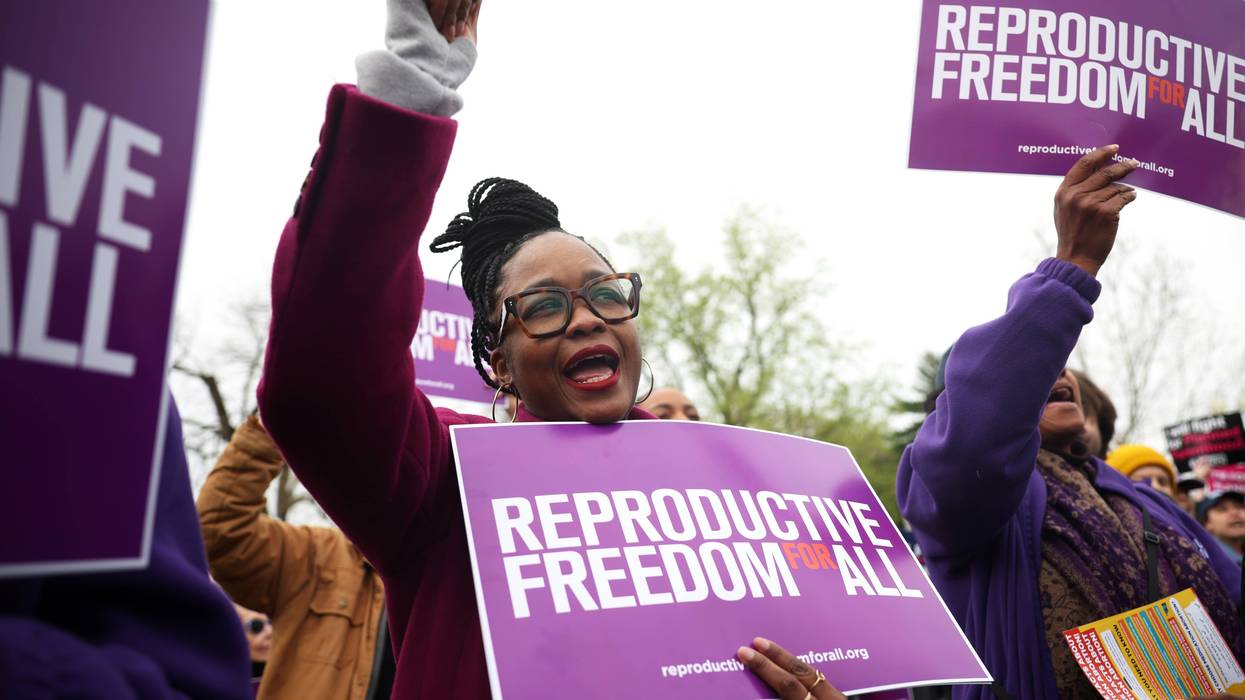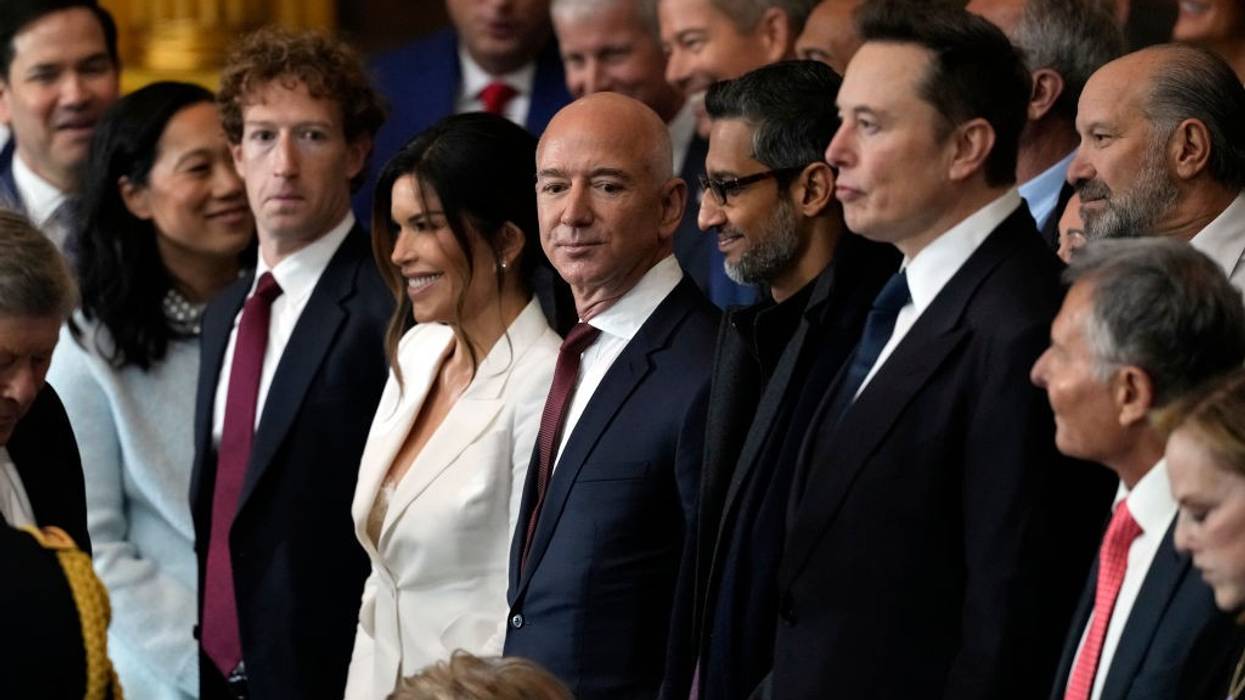A report released today by Rainforest Action Network, BankTrack, Indigenous Environmental Network, Oil Change International, Sierra Club, and Honor the Earth, and endorsed by over 160 organizations around the world, reveals that 33 global banks have provided $1.9 trillion to fossil fuel companies since the adoption of the Paris climate accord at the end of 2015. The amount of financing has risen in each of the past two years.
Of this $1.9 trillion total, $600 billion went to 100 companies that are most aggressively expanding fossil fuels. Alarmingly, these findings reveal that the business practices of the world's major banks continue to be aligned with climate disaster and stand in sharp contrast to the recent IPCC special report on global warming. That report, Global Warming of 1.5 degC, clearly outlined the critical need for a rapid phase-out of fossil fuelsand estimates that the world's clean energy investment needs are $2.4 trillion per year up to 2035.
Banking on Climate Change 2019 is the tenth annual fossil fuel report card and the first ever analysis of funding from the world's major private banks for the fossil fuel sector as a whole. Expanded in scope, the report adds up lending and underwriting to 1,800 companies across the coal, oil and gas sectors globally over the past three years. The report also tracks fossil fuel expansion by aggregating data on which banks are financing the 100 companies most aggressively expanding fossil fuels.
Banking on Climate Change 2019 reveals that the four biggest global bankers of fossil fuels are all U.S. banks -- JPMorgan Chase, Wells Fargo, Citi, and Bank of America. Barclays of England, Mitsubishi UFJ Financial Group (MUFG) of Japan and RBC of Canada are also massive funders in this sector. Notably, JPMorgan Chase is by far the worst banker of fossil fuels and fossil fuel expansion -- and therefore the world's worst banker of climate change. Since the Paris Agreement, JPMorgan Chase has provided $196 billion in finance for fossil fuels, 10% of all fossil fuel finance from the 33 major global banks.
JPMorgan's volume of finance for fossil fuels 2016-2018 is a shocking 29% higher than the second placed bank, Wells Fargo. The bank stands out even more from its peers in its volume of financing for the top companies expanding fossil fuel extraction and infrastructure: since the Paris climate agreement, JPMorgan Chase's $67 billion in finance for the expanders is fully 68% higher than that of Citi, in distant second place.
With Morgan Stanley and Goldman Sachs in 11th and 12th places respectively in the fossil fuel financing league table, all of the big six U.S. banking giants are in the top "dirty dozen" bankers of climate change.Together, U.S. banks account for 37% of all global fossil fuel financing. Collectively, the U.S. banks are the biggest source of funding for fossil fuel expansion since the Paris Agreement was adopted.
Barclays, the top European banker of fracking and coal, leads as the worst European bank, with $85 billion poured into fossil fuels and $24 billion into expansion. Japan's worst fossil fuel bank, MUFG, funded $80 billion in fossil fuels overall and $25 billion in fossil fuel expansion. RBC, the world's top banker of tar sands, leads in Canada, banking fossil fuels at $101 billion. The world's top banker of coal power, Bank of China, qualifies as China's worst banker of fossil fuels, with $17 billion funneled into expansion from 2016-2018.
The report also grades banks' future-facing policies regarding specific fossil fuel sectors and fossil fuels overall. In assessing restrictions on financing for fossil fuel expansion, no banks scored above a C-range grade, and most bank grades were in the D range. No banks have made commitments to phase-out fossil fuel financing in alignment with a 1.5degC-aligned Paris-compliant trajectory, despite the fact that numerous banks and bankers -- including JPMorgan Chase CEO Jamie Dimon -- have declared their support for the Paris Agreement.
The report also analyzes the banks' unacceptably poor performance on human rights, particularly Indigenous rights, as it relates to the impacts of specific fossil fuel projects, and climate change in general. The case studies detailed in the report -- from the Indigenous-led opposition to each of the three major proposed tar sands oil pipelines in North America, to the fragile Arctic National Wildlife Refuge under threat from drilling, to German utility RWE's plans to expand an open-pit lignite coal mine while destroying the 12,000-year-old Hambach Forest -- all highlight that banks lack effective energy and human rights policies to prevent them from financing these highly problematic projects and the companies behind them.
Statements:
Alison Kirsch, Climate and Energy Lead Researcher at Rainforest Action Network:
"Alarming is an understatement. This report is a red alert. The massive scale at which global banks continue to pump billions of dollars into fossil fuels is flatly incompatible with a livable future. It's an insult to logic, to science and to humanity that since the groundbreaking Paris Climate Agreement, financing for fossil fuels continues to rise. If banks don't rapidly phase out their support for dirty energy, planetary collapse from man-made climate change is not just probable -- it is imminent."
Rainforest Action Network has a 30+ year history challenging corporate power and systemic injustice topreserve forests, protect the climate and uphold human rights through frontline partnerships and strategic campaigns.
Johan Frijns, Director of BankTrack:
"We're faced with ever worsening climate change impacts worldwide, and the latest IPCC report provides a stark 2030 deadline for the deep cuts in global CO2 emissions needed to avoid full climate breakdown. Yet banks continue to throw their billions at the fossil fuel industry, while announcing minor policy tweaks here and endorsements of the latest toothless 'responsible finance' initiative there. One wonders what on earth it will take for banks to finally change course and fully abandon the fossil fuel sector. Campaigners will be demanding exactly this at this year's upcoming bank AGMs, armed with this report's shocking new findings."
BankTrack is the global tracking, campaigning and NGO support organisation targeting the operations and investments of commercial banks.
Tom Goldtooth, Executive Director of Indigenous Environmental Network:
"These banks are funding a future that will cost the well-being of the next seven generations of life and beyond. Indigenous prophecy now meets scientific prediction. Mother Earth and Father Sky are out of balance. Indigenous knowledge and western science both clearly demand that we must rapidly divest from fossil fuels in order to avoid complete climate disaster. Any financial institution that refuses to take action should be stripped of its social license to operate and be held accountable for its investments."
The Indigenous Environmental Network works with Indigenous Peoples nationally and globally on a rights-based approach addressing environmental, economic and energy injustices of an extractive economy and developing the power and capacity for a just transition for building sustainable indigenous communities.
Stephen Kretzmann, Executive Director of Oil Change International:
"We're deep in a hole on climate. There are people making ladders, and they think we can make it to the top - but - there are also people making shovels, and every day they dig the hole deeper. The people with the ladders don't think they'll be able to reach the top if the hole gets much deeper. The banks in this report are funding the people with shovels, devoting billions to the expansion of fossil fuel reserves which, when burned, will ensure the failure of the Paris Climate Agreement. Financing the expansion of any part of the oil, gas, or coal industry is now clearly climate denial, and we demand that it stop."
Oil Change International is a research, communication, and advocacy organization focused on exposing the true costs of fossil fuels and facilitating the ongoing transition to clean energy.
Ben Cushing, Sierra Club Beyond Dirty Fuels Campaign Representative:
"At a time when science tells us we need to rapidly transition to clean energy, major American banks are placing themselves on the wrong side of history by continuing to offer a blank check to the fossil fuel industry. The global outcry for financial institutions to stop financing climate destruction will only grow louder and more powerful until these banks get the message and pull their support for dirty fossil fuels once and for all."
The Sierra Club works to safeguard the health of our communities, protect wildlife, and preserve our remaining wild places through grassroots activism, public education, lobbying, and litigation.
Tara Houska, Campaigns Director of Honor The Earth:
"Financial institutions are funding the destruction of our planet. Climate crisis is a reality that will be shared by every living being -- we need change, we need it now. It is a question of our shared survival that banks must respond to. We cannot drink money."
Honor The Earth is an indigenous women-led organization focused on protecting Mother Earth through the arts, music, advocacy, supporting grassroots efforts and empowering tribal nations with renewable energy solutions.
List of 33 Global Banks
Agricultural Bank of China | China |
Bank of America | USA |
Bank of China | China |
Bank of Montreal | Canada |
Barclays | U.K. |
BBVA | Spain |
BNP Paribas | France |
BPCE/Natixis | France |
Canadian Imperial Bank of Commerce (CIBC) | Canada |
China Construction Bank | China |
Citi | USA |
Credit Agricole | France |
Credit Suisse | Switzerland |
Deutsche Bank | Germany |
Goldman Sachs | USA |
HSBC | U.K. |
Industrial and Commercial Bank of China (ICBC) | China |
ING | Netherlands |
JPMorgan Chase | USA |
Mitsubishi UFJ Financial Group (MUFG / Bank of Tokyo-Mitsubishi UFJ) | Japan |
Mizuho | Japan |
Morgan Stanley | USA |
Royal Bank of Canada (RBC) | Canada |
Royal Bank of Scotland (RBS) | U.K. |
Santander | Spain |
Scotiabank | Canada |
SMBC Group (Sumitomo Mitsui Financial Group / SMFG) | Japan |
Societe Generale | France |
Standard Chartered | U.K. |
Toronto-Dominion Bank (TD) | Canada |
UBS | Switzerland |
UniCredit | Italy |
Wells Fargo | USA |





